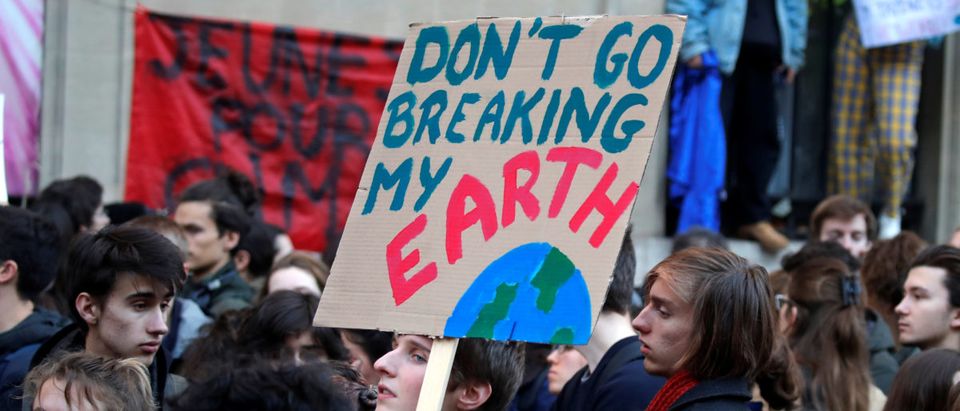Social media outlets are abuzz with the news of thousands across the planet skipping school and leaving work to take part in a global climate strike. Climate strikers, scared about their futures, are loudly demanding that government take action by, among other things, banning the use of fossil fuels.
To their increasingly authoritarian agenda of government mandates, restrictions on energy use, and threats to disrupt “business as usual,” they’ve now added suing governments around the world to force them to restrict energy use. This agenda will ultimately backfire as people grow weary of the disorder and privation caused by the strikers and their demands.
For strikers, focusing on personal responsibility would likely be more useful than calling for governmental mandates. If they’re so committed to their personal beliefs that they’re willing to make fundamental changes in their own lives, others will be more likely to respect them. Some may even end up joining their cause.
Instead, the strikers and climate activists have chanted and drummed their ultimatum out to the world: How dare you develop and use fossil fuels? Of course, this ignores the fact that fossil fuels keep billions of people fed, comfortable and healthy. Climate strikers then continue with additional demands: We must replace essential energy with a growing list of regulations, carbon taxes, energy poverty and unreliable and expensive energy sources.
As the strike began last Friday, those involved were understandably excited about the possibility that their bold, coordinated statement could make the world aware of their concerns. Their early enthusiasm and support was to be expected, but as the strike grinds on and groups like Extinction Rebellion continue to block traffic in major cities with their noisy demonstrations, expect that early support to wane. People stuck in an idling car, wasting their time and fuel as they try to get to work, will look for ways to resist the authoritarian tactics and will grow to resent the striker’s threats.
For example, the Swedish teen who has become the symbolic head of the global climate strike, Greta Thunberg, tweeted out a warning on Friday to those who didn’t join her cause: “If you belong to the small number of people who feel threatened by us, then we have some very bad news for you: This is just the beginning. Change is coming — like it or not.”
Several strikers joined in, making even more ominous threats. They carried signs that claimed, “Capitalism Kills!”; others threatened to “overthrow” the system. Others, like the Women’s March Minnesota, blocked sidewalks in front of the Minnesota State Capitol and repeatedly chanted, “If we don’t get it [climate justice], shut it down!” Some carried signs that deified Thunberg, or depicted her as the Virgin Mary, while others employed disturbing calls for violence: “To the 1% stop killing the planet or we’ll kill you.”
There are a few online who defend these outbursts, claiming the strikers are supported by science and that those who disagree are “deniers” who should be ashamed to attack concerned children. But this retort falls flat. First, when anyone — even a child — threatens to overthrow our current political system, or (worse) to kill people they disagree with, reasonable people have a right and duty to respond. Second, science does not call for strikes or direct action. Science simply tells us what is or isn’t; what is or isn’t there. Serious science doesn’t tell us how to balance all the varying interests involved in a dynamic and complex discussion about the best course of action for the entire planet. Like it or not, that’s the role of policy and politics.
Herein lies the value of accepting personal responsibility as a primary catalyst for change. Research published in the journal Climatic Change indicated that those who had taken personal action to combat climate change were viewed as more credible when they asked others to make similar sacrifices. So, instead of demanding others change their behavior under threat of government mandates, strikers would do better to lead by example. First they can change their own actions, and then they can ask others to join them.
Here’s one way they can accomplish that: Strikers can pledge to do more than just march and carry a sign. Anyone who is seriously concerned can choose their own course of action instead of trying to force others to make a change.
Jason Hayes is the director of environmental policy at the Mackinac Center for Public Policy, a research and education institute based in Midland, Mich.
The views and opinions expressed in this commentary are those of the author and do not reflect the official position of The Daily Caller.


